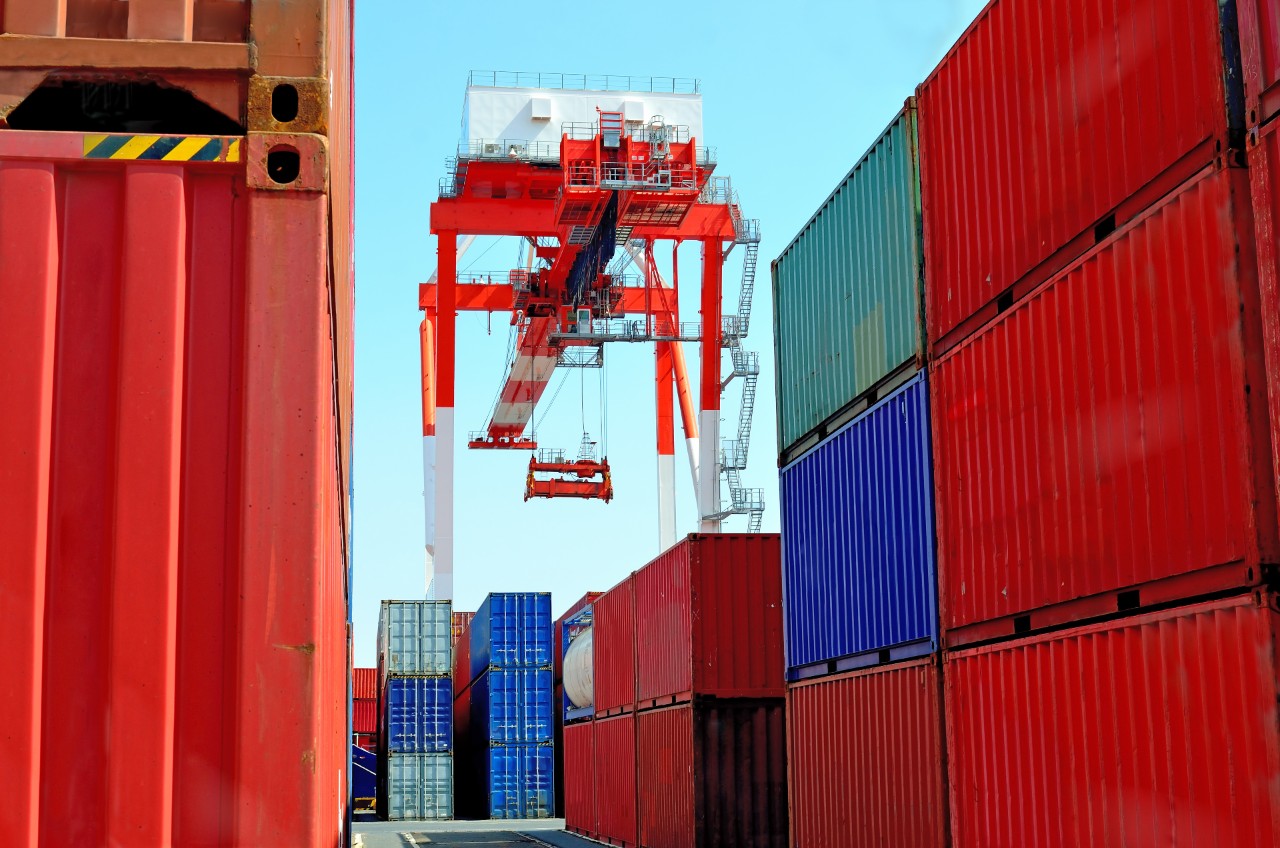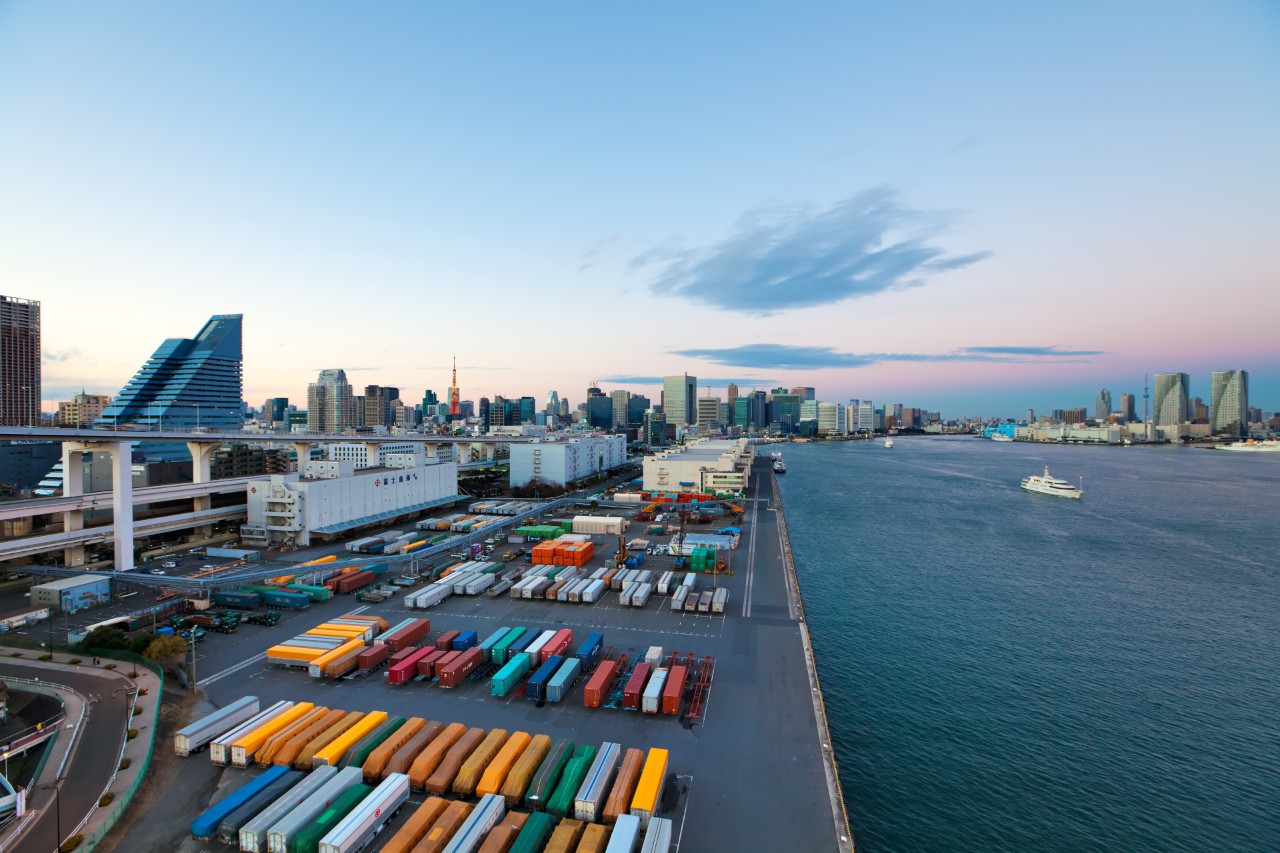Japan’s logistics industry is a fast-moving, essential sector currently undergoing rapid development and structural change to meet the needs of both businesses and consumers in the APAC region.
We outline some of the major trends taking place, key drivers of growth for the market and insights into how consumer demand and technology is continuing to shape the landscape.
The Japanese Logistics Industry Overview
The Japan freight and logistics market is expected to grow steadily over the next few years, partly thanks to the country’s burgeoning ecommerce market. Today, Japan has the third largest ecommerce market globally, after the US and China. Importing goods from the region and further away; storage and fulfilment; and transportation and delivery services all contribute to this complex landscape.
Sales value of Logistics Market in Japan (In Trillion JPY)
| 2018 | 21.16 |
| 2019 | 20.41 |
| 2020 | 20.24 |
| 2021 | 20.72 |
| 2022 | 21.58 |
Source: Statista
No doubt the pandemic had a significant impact on the sector with many supply chain executives reporting revenue decreases due to travel restrictions affecting the movement of goods and, therefore, severely disrupting global supply chains. Yet, this period has also seen a spike in demand for ecommerce and home delivery services.
Major players in this sector continue to rapidly adopt new technologies and management systems to help them meet the demands of the market, including automation systems, drone tech and better tracking facilities.
43 percent of supply chain executives witnessed a revenue decrease due to the COVID-19 pandemic between December 2020 and February 2021.
Top Logistics and Freight Companies based in Japan
There is significant diversity in this sector, now made up of both global and regional freight and logistics companies.
- NNR Global Logistics
- SAGAWA Global Logistics
- Kokusai Express
- Deutsche Post
- DHL Group
- HAVI Logistics & Supply Chain
- Schenker-Seino
- Nippon Express
- Japan Post
- Yamato Logistics
Drivers of Growth in Japanese Logistics

Japan is at the centre of a growing region for logistics, with APAC predicted to be the largest logistics market globally due to the positive outlook for emerging economies in the region. The Freight and logistics market in Japan alone is expected to see an annual growth rate of more than 4% between 2022 and 2027, according to Mordor Intelligence.
Growth of the Japanese Ecommerce Market
The growth of Japanese ecommerce and the increasing demand for shipping services is a huge driver of growth for the logistics industry in Japan. As well as high personal wealth, the nation’s developed economy and the fact that most people live in highly urbanised areas, this is a great market for ecommerce retailers.
Major B2C platforms like Amazon and Rakuten have consistently increased annual sales in Japan, but we’ve also seen a growth of C2C platforms like Mercari take off — providing another way for consumers to shop and an increased need for smart delivery solutions in a market where consumer expectations for fast and reliable deliveries is extremely high.
We’ve also seen larger numbers of older demographics take up online shopping since the pandemic, contributing to sales in product categories such as healthcare, medical equipment, and groceries.
| Year | Revenue in million USD (US$) |
| 2021 | 112,465 |
| 2022 | 120,292 |
| 2023 | 128,054 |
| 2024 | 135,666 |
| 2025 | 143,279 |
Source: Statista
Read Our Guide to Japanese Ecommerce Logistics
Globalization
As well as being a major exporter of goods such as electrical appliances and cars, Japan is highly dependent on imports and sea freight. Osaka, Kobe, and Yokohama are all major port cities which serve as a bridge for international trade.
With cross border trade likely to increase with its regional neighbours such as China and Korea (as well as producers from the US and Europe), combined with an increased demand for products and brands from abroad, the logistics industry is set to benefit from this trend.
Also, Japan is a strategic foothold for global businesses expanding into APAC. Whether it’s a testing ground for whether success is possible or a location for a regional head office, this is likely to impact the proliferation of goods, materials and products in the Japanese logistics market.
Logistics Technology and Cloud Operations
New technology such as cloud-based operations have simplified the supply chain management for many players in this sector. Many businesses are involved in optimising their processes for greater control and visibility by leveraging new technology such as management and tracking systems.
This is helping to simplify the largely complex process involved in logistics and supply chain management as well as contributing to improved services for customers.
The Automotive and Manufacturing Industry
Japan has long been considered to be one of the global leaders in automobile manufacturing— a sector that largely relies on the reliable supply of materials such as machinery, oil and gas, raw materials and metals from abroad.
The nation is also famous for its consumer electronics, semiconductor manufacturing and optical fibres among other components, respected for its commitment to quality.
All of this has been a huge driver in demand for the logistics industry necessary to fuel the production of products and goods as well as facilitate the transport of them domestically and abroad through its highly developed infrastructure and port network and its dense concentration of shipping lines.
Trends in Japanese Logistics

| Supply Chain Management Software | New software is being designed and adapted to enhance and strengthen supply chain operations in Japan. This encompasses everything from inventory management to transportation. Real-time analytics have also been a powerful tool in understanding demand and consumer behaviours for large ecommerce retailers. |
| Artificial Intelligence | Some players are embracing technologies in the AI space to support processes such as warehouse management. |
| Automation | While many processes have already moved towards automation to make processes more efficient and predictable, there has been an increased adoption of Internet of Things (IoT), Blockchain technology, and cloud computing to support automation to reduce costs. |
Customer Trends for The Logistics Industry
Japanese consumers expect a lot when it comes to online shopping and deliveries, which has placed a great deal of strain on the logistics sector and forced it to adapt. A few major consumer trends that have been driving this evolution of the sector include:
- Accuracy and flexibility when it comes to delivery tracking and management
- A high exception for reliable, transparent and helpful customer service
- A desire for more sustainable delivery processes, packaging and a greater commitment to environmental issues from ecommerce retailers
- The flexibility to pay the way they want, whether it’s cash on delivery or card
- A preference for receiving packages from a reliable delivery company and driver
Learn More About the Japanese Market
If you’re getting into the Japanese market and are curious about logistics, ecommerce or consumer behaviour, we might be able to help. We’ve worked extensively with brands and retailers across the world to help them bring their businesses to Japan and would be happy to share some insights on building a successful marketing and localization strategy.